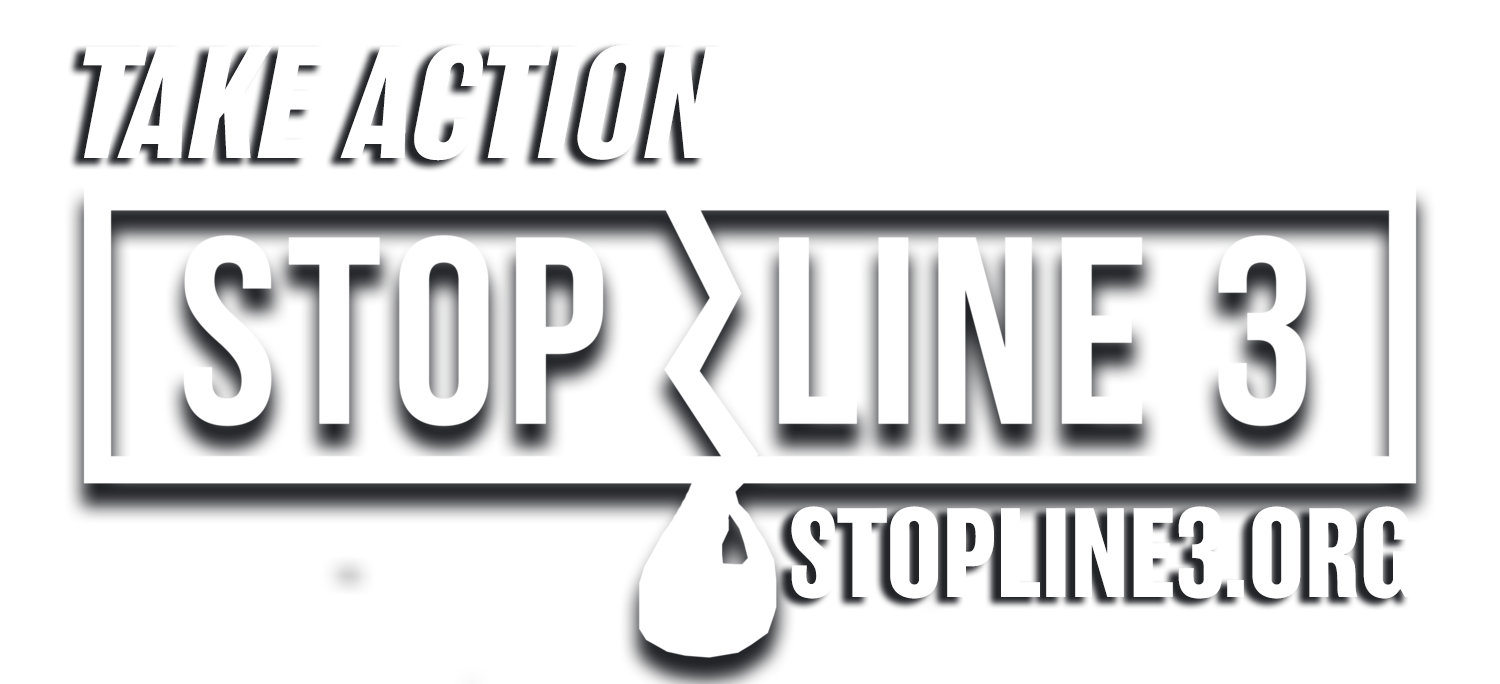Today, tribes and environmental groups filed 3 separate lawsuits against the MN Public Utilities Commission (PUC), challenging the Environmental Impact Statement (EIS) prepared for the proposed new Line 3 pipeline. All three lawsuits ask the Minnesota Court of Appeals to overturn the PUC’s May 2018 decision that found the EIS “adequate.” A reversal of that decision would undermine the PUC's approval of the project in late June, which the EIS was used to inform.
Two of today’s appeals were filed by non-profit organizations: Honor the Earth, based on the White Earth Reservation, and Friends of the Headwaters, the local citizen's group in Park Rapids, Minnesota, that successfully appealed the PUC’s approval of the Sandpiper pipeline back in 2015. The third was a joint filing by four tribal governments - the Fond du Lac, Mille Lacs, Red Lake, and White Earth Bands of Ojibwe.
Read Honor the Earth's press release here and their full lawsuit here. Read the joint tribal lawsuit here.
The lawsuits outline a long list of deficiencies in the EIS and argue that these shortcomings, both procedural and substantive, constitute violations of the Minnesota Environmental Policy Act (MEPA). All of these issues have been raised multiple times by intervening parties in the case already, and repeatedly ignored by the PUC. In July, the PUC ruled unanimously to deny the formal “Petitions for Reconsideration” of their EIS adequacy decision.
“The EIS is long, but it is shallow, and was written to support approval of Line 3,” says Winona LaDuke, Executive Director of Honor the Earth. “The EIS simply failed to take a hard look at the costs of Line 3 to our people, our land, our water, and our climate.”
Here are some of the major issues with the EIS:
Procedural
- was not completed in time to serve its statutory purpose of informing the permitting proceedings, since only the draft EIS was available before those proceedings began
Scope
- only looks at the proposed initial capacity of 760,000 barrels per day, ignoring the likely expansion of the Project to a capacity of 915,000 barrels per day
- limits its consideration to a single pipeline, and does not consider the cumulative effects of opening a new pipeline corridor and the likelihood of additional pipelines
- does not consider the pipeline expansions in Wisconsin and Illinois that will be needed to accommodate the additional oil carried by the new Line 3
- does not properly define the project’s purpose (simply accepting Enbridge's business "purpose" of getting oil from Alberta to Superior) and does not even attempt to analyze whether the Project is needed
- compares the project to an unreasonable set of alternatives, including several absurd alternatives (such as hundreds of trucks a day), and does not properly analyze the “no-action” alternative
- does not analyze the site-specific impacts of potential oil spills along any of the routes (such as in Lake Superior), and does not use generally accepted oil spill risk assessment methodologies
- does not analyze the potential for contamination caused by leaks from the existing Line 3
- fails to consider any non-oil alternatives to meeting Minnesota’s energy needs
Tribal Issues
- does not include tribal consultation data within the EIS (remember when the agency in charge of the EIS, the Department of Commerce, told their tribal liason to stay quiet and just pass out cookies?)
- does not adequately analyze impacts to treaty-protected tribal resources, including the potential impact of oil spills on such resources
- does not include the results of a tribal cultural properties survey that is not yet completed for Enbridge’s preferred route, and makes no effort at all to survey cultural resource impacts on any alternative routes
- does not adequately consider mitigation for impacts to tribal properties and interests
The Court of Appeals will now review the 3 initial filings and the PUC’s records for the case, and decide whether or not to hear oral argument from the attorneys. The process could take months. In the meantime, the PUC will proceed with their approval of the project, the Fond du Lac Band will continue grappling with the impossible routing choice they now face, and Enbridge will continue surveying the route to prepare for construction. If necessary, the groups that filed appeals could ask the Court for an injunction that would prohibit construction while the case is being heard. It is unclear if such a request would be granted.
In addition to these lawsuits contesting the adequacy of the EIS, separate lawsuits could be filed against the PUC challenging their approval of the permits. No such plans have been announced yet.

